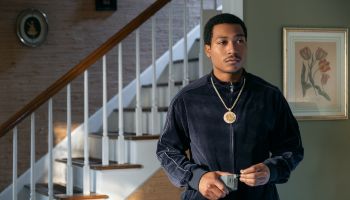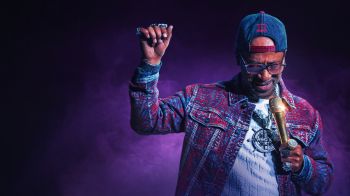‘I have no one to speak too [sic],’ read an online posting from January 2005, when Umar Farouk Abdulmutallab, the alleged “Christmas Bomber” was attending boarding school in England. ‘No one to consult, no one to support me and I feel depressed and lonely. I do not know what to do. And then I think this loneliness leads me to other problems.”
Four years later. Christmas Day. The other problems become real. 100 grams of an explosive chemical. A pair of homemade underwear. A frightened and lonely young man. A plane ticket paid in cash. A passage of a holy book recited over and over again. Simple ingredients. A simple plan. Yet, a very complicated response. From him and the world.
In an oversized white t-shirt, he stares blankly in his second photograph taken while he is in the States. The first one blurred out by CNN. He looks straight ahead as if he has done nothing wrong. Yet, he must know that he was moments away from killing 289 people. He is black. He is African. He is educated. He is wealthy. Yet all of the money in the world and a four million dollar apartment in London couldn’t stop Farouk from getting on a plane and deciding that his end had arrived. His fate had been decided by a few guys, who he barely knew, probably while sipping mint tea in an internet café somewhere. And now all he can do is stare blankly for his mugshot.
And now all we can do is clamp down. And now all we THINK we can do is clamp down. New restrictions. No blankets on your lap. No going to the bathroom an hour before landing. More troops. Pre-emptive strikes. Bigger guns. Presidents interrupting vacations. Strong words for someone, some thing, some country, anything to make the fear go away. But it seems no matter what governments and state agencies do, some dude in some internet café in some country is letting us know that he’s got more lonely and depressed young men ready to roll. And Farouk makes it loud and clear when he tells the FBI, “there are more like me.”
Farouk’s words remind me that our generation has much work to do. Many of us passionately went to work to get our President elected, believing that the hope he brought would create global systematic change overnight. When some became disillusioned because President Obama came up against stronger roadblocks than we all expected, we forgot why we had the audacity to hope. And now that this has happened under President Obama’s watch, I am sure there will be many who will begin to question if his approach to the Muslim world is really working?
But, what we haven’t questioned, and maybe we should, is whether or not, our own personal approach to humanity is working. Have we contributed to the hopelessness that millions of young men and women around the world feel? What kind of prejudices do we have that cause others to feel pain? What kind of stereotypes do we hold that make others feel inferior? What kinds of racist thoughts do we perpetuate that create fea
















